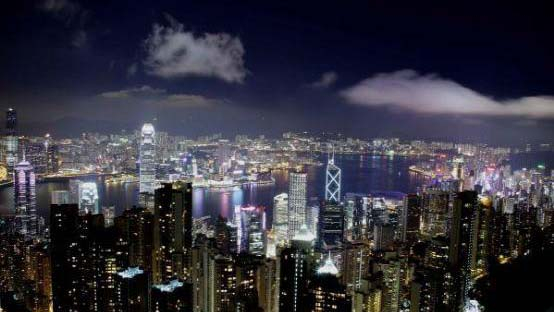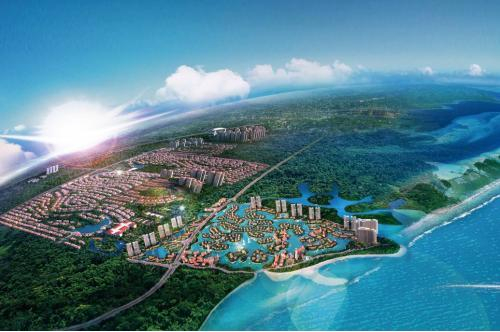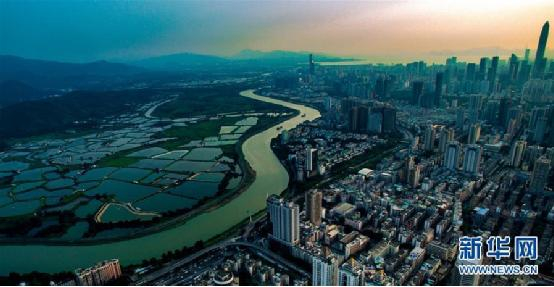

Today marks the 22nd anniversary of Hong Kong's return to China. Hong Kong SAR's Chief Executive Carrie Lam has attended the flag-raising ceremony. Meanwhile, celebrations are underway in the city's Victoria Park. A three-day festival opened to the public on Saturday, featuring new technology, music, sporting events and food. The event is one of the 360 celebrations being held in the city to mark the anniversary. It's estimated that more than 300,000 people are taking part.
Beyond the celebrations, how has Hong Kong's economy performed over the past 22 years? And what hopes do the locals hold for their future?
"Over the past 22 years, Hong Kong has become more and more closely connected with the mainland...We Hong Kong people have got a deeper understanding of the mainland and a deeper sense of national identity," said a local resident.

A blueprint of China's Guangdong-Hong Kong-Macao Greater Area. /Xinhua Photo
Since its handover to China, Hong Kong has seen stable economic growth. Last year, the regional GDP hit over 2.6 trillion Hong Kong dollars, more than double that of 1996 in nominal value. Hong Kong is also seen as one of the most economically competitive regions in the world. The region has been ranked as the freest economy in the world for 25 consecutive years by the Index of Economic Freedom of the Heritage Foundation.
A United Nations report says Hong Kong absorbed 104 billion US dollars in direct foreign investment in 2017, ranking third in the world. In terms of investment stock, Hong Kong ranked second in the world as a source and recipient of investment, only after the U.S. In 2017, China's ambitious blueprint of building the Guangdong-Hong Kong-Macao Greater Bay Area officially kicked off. Consisting of cities and regions along the Pearl River Delta and covering over 56,000 square kilometers, the area is set to enhance its status as one of China's most open and economically vigorous regions.

A view of Hong Kong and Shenzhen. /Xinhua Photo
Of course, many see the return as a great opportunity for Hong Kong. "We have returned. We have got strong support from our own country, and we have seen President Xi Jinping is designing and promoting the establishment of the Greater Bay Area...this could be a good opportunity for Hong Kong's own development," said Chen Yong, the director of the Fellowship Association in Hong Kong's New Territories.
The total population in the Guangdong-Hong Kong-Macao Greater Bay Area is expected to reach over 70 million by the end of this year. And many people in Hong Kong say they will never stop working toward a better future.

Copyright © 2018 CGTN. Beijing ICP prepared NO.16065310-3
Copyright © 2018 CGTN. Beijing ICP prepared NO.16065310-3